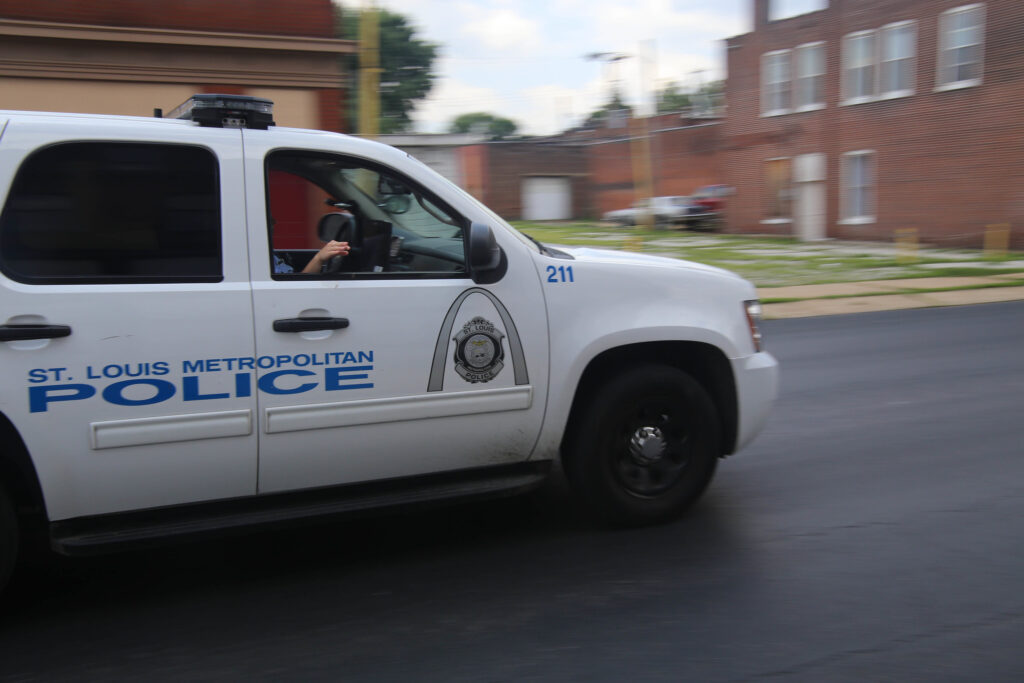The Marshall Project opened a local nonprofit newsroom in St. Louis to support local media with investigative and data journalism about the criminal justice system.
St. Louis is the third city in the New York-based Marshall Project’s local network. The other two are Clevaland and Jackson, Mississippi.
“This newsroom is several years in the making. Over the last 20 years, you’ve seen a decrease in manpower for the states. We’re going to do criminal justice work to contribute to the larger conversation at hand and also partner with other agencies to get that work shared,” said Managing Editor Marlon A. Walker.
The Marshall Project is not new to St. Louis. The national outlet, which is headquartered in New York, partnered last year with St. Louis Public Radio on a project that looked into the more than 1,000 unsolved homicides in St. Louis over the past decade. The investigation focused on the police department’s failure to close cases due to a shortage of resources and botched investigations by several detectives.
With its new bureau, the Marshall Project will focus on Missouri and Illinois criminal justice issues including the death penalty, re-entry after incarceration and health care in prisons.
The Missouri Foundation for Health is funding a three-year grant that will enable the Marshall Project to hire staff. The Joan & John Vatterott Family Foundation is also financially supporting this venture.
The reporting team will consist of two investigative reporters and an engagement reporter. The new team consists of Jesse Bogan of the St. Louis Post-Dispatch, Katie Moore of the Kansas City Start and Ivy Scott of the Boston Globe.
“Our role is to highlight and spotlight inequities, deficiencies, and best practices of the prison system,” said Walker, who previously worked at the St. Louis Post-Dispatch. They have had conversations about co-reporting with the St. Louis Post-Dispatch and other local publications regarding stories on the horizon.
Scott started Jan. 6 as the newsroom’s engagement reporter. In her new position, Scott will ensure that the newsroom’s work addresses topics about which people in St. Louis and across Missouri care. She also figures out how best to communicate her work to the St. Louis community. “My focus is specifically on community engagement, making sure we’re covering stories the community is actually interested in. We rely on crowdsourcing, phone-ins, and engagement on social media.”
At the Boston Globe, Scott served as the newspaper’s police accountability reporter and then state courts reporter. Scott investigated police misconduct — including a police officer with a track record of reckless driving who totaled a woman’s car during a police chase, She also extensively covered the state’s reentry programs and access to higher education in prisons. Scott worked on a podcast miniseries about women who fall in love with men in prison, and how they overcome the barriers the justice system creates to family, relationships and intimacy.
Looking forward, Scott is enthusiastic about all the possibilities that stem from the newsroom’s focus on criminal justice. “We are definitely still in the brainstorming phase, but an area we are thinking about is prison and jail conditions, whether they have good resources for people who are returning home to their communities.”
Bogan worked at the Post-Dispatch for about 15 years, covering criminal justice and mental health. Bogan also focused on areas that were under-reported: “I tend to write about people who otherwise would not have been covered in the news, whether it’s homeless people trying to live in vacant houses or somebody civilly committed against their will in the state mental health system or somebody trying to eke out a living scrapping metal from the alleys of St. Louis.” He covered major breaking news, including coverage of the fatal police shooting of Michael Brown in Ferguson and the following unrest. He also covered prisons, homelessness, the foster care system, and social services.
Bogan said he doesn’t know if the Post-Dispatch will replace him. He left in November.
“I definitely hope they do,” he said. “The Post-Dispatch is still doing really good work. I’m a subscriber and I read it every day. I hope to continue a partnership with the Post-Dispatch and I hope to continue to have stories in the Post-Dispatch.”
For now, the Marshall Project newsroom is trying to meet as many people as possible. “We’ve been having conversations with people about the state of criminal justice, about the state prison system, about the court system, so we are still in that phase,” Scott said. “We are beginning to talk about what our first stories will be.”
Elizabeth Tharakan is an attorney and doctoral candidate at Southern Illinois University Carbondale.
- Opinion: 55 years of unforeseeable technological inventions revolutionize everything
- Institutions of journalism accountability disappear
- The rise and resilience of nonprofit newsrooms
- Episode 2: When a university tries to stop the press
- When Teen Vogue’s newsroom went silent, so did a generation’s voice.

